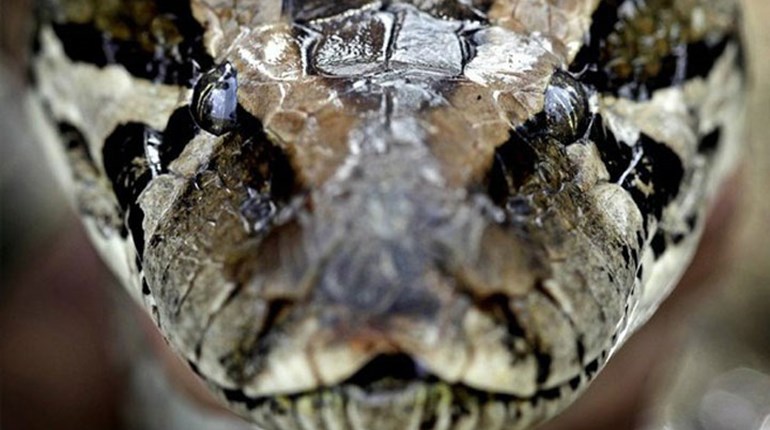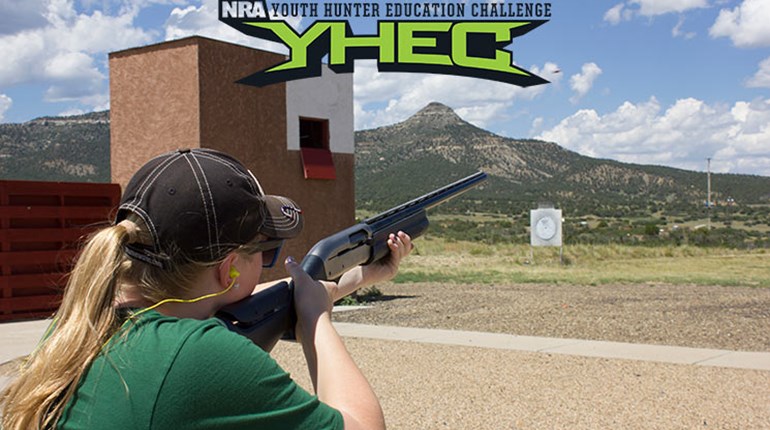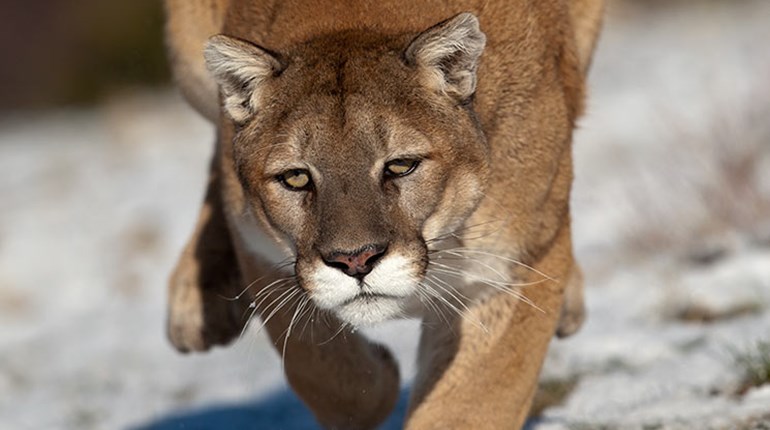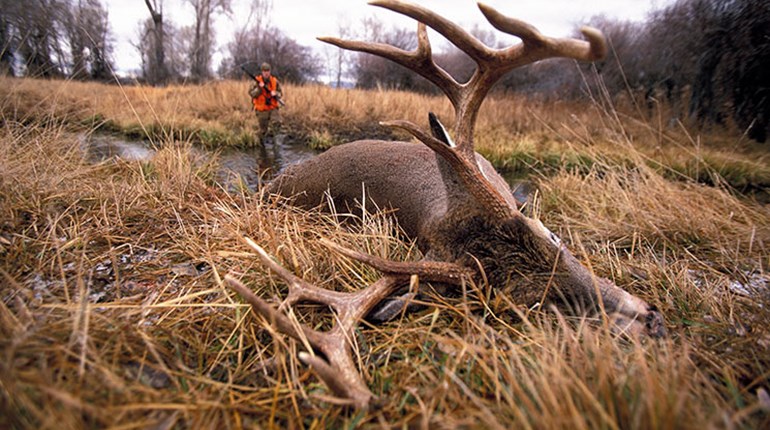
Studies show that while 79 percent of Americans support ethical hunting, the number of hunters in the United States today is about the same as 50 years ago when there were half as many people. Why don’t more people hunt? There’s plenty of game. According to a survey by Responsive Management, lack of free time, family and work obligations, and lack of access are the most common reasons why people give up hunting.ⁱ
There’s another reason. According to Penn State psychologist Simon Bronner, 56 percent of hunters say they have been confronted with anti-hunting sentiments and people.²
Anyone is entitled to have an opinion, but if someone says that hunters are mentally ill, they are talking psychology. In this article, I’d like to clear up some misconceptions about hunting and mental health based on my research and experience as a retired professor of psychology and environmental studies at four universities and three psychology grad schools, and as one of the founders of the Division of Environment, Population and Conservation Psychology of the American Psychological Association.
A Google search for “the psychology of hunting” finds many articles claiming hunters are sadistic and/or psychopathic. One writer claims all trophy hunters “are simply mentally ill and derive pleasure from behaviors that hurt other living things, and are even willing to expend extra effort to make another living being suffer.”³ Very few of the articles that claim hunters are crazy are written by behavioral scientists who study humans.
It’s possible some hunters are mentally ill, but not many. One simple reason: In order to get a hunting license in the United States and Canada, one must first pass a hunter education exam; the instructor may refuse to pass a person who doesn’t seem stable enough to be a safe hunter.
Some people oppose hunting because, they say, it is cruel to animals, and so hunters must be mentally disturbed sadists. Actually, a sadist wouldn’t want to kill animals quickly, as ethical hunters do, but rather would want to make animals suffer. In contrast, many hunters offer prayers of thanksgiving for animals taken.
Most prominent psychologists of the 20th century agreed hunting is motivated by a natural instinct, and it’s beneficial to mental health. In his highly acclaimed study of human aggression, “The Anatomy of Human Destructiveness,” psychologist Erich Fromm wrote: “In the act of hunting, the hunter returns to their natural state, becomes one with the animal, and is freed from the burden of his existential split: to be part of nature and to transcend it by virtue of his consciousness. In stalking the animal he and the animal become equals, even though man eventually shows his superiority by use of his weapons.”
Consistent with Fromm, Yale sociologist Dr. Steven Kellert and Amherst College professor Jan Dizard found the reasons why people hunt are: to experience nature as a participant; to feel an intimate, sensuous connection to place; to take responsibility for one’s food; and to acknowledge kinship with wildlife.⁴
Psychiatrist Karl Menninger, M.D., wrote in his book, Sparks: “Freud fearlessly explored the unconscious layers of the personality, and disclosed the fact that it is no more abnormal for a human to want to kill (in hunting) than it is for a cat to want to kill a mouse or a fox to kill a rabbit.” According to Menninger’s daughter, Connie, her father was a hunter.
Sigmund Freud and Carl Jung fished and hunted. See photos of the two doing so at historacle.org/freud_jung.html.
Consulting search engines that index more than 400 professional anthropology, psychology and psychiatry journals, I found nearly 300 articles that use the word “hunting.” None of these report any correlation between ethical hunters and psychopathology. Also, the research department of the American Psychological Association told me they weren’t aware of any scientific research to support claims that hunters in general are prone to mental illness.
One of the few studies that portrays hunters negatively is an article by sociologists Linda Kalof and Amy Fitzgerald, published in the Journal of Visual Studies in 2003. They studied photographs of hunters with trophies in 14 popular hunting magazines, and reported: “Instead of love and respect for nature and wildlife, we found extreme objectification and marginalization of animal bodies.”⁵
That “research” is about their subjective personal opinions of art. I’d guess if you did the same study you’d conclude these hunters were just proud.
When criminologist Chris Eskridge compared hunting license sales with violent crime rates on a county-by-county basis nationwide, he found that as hunting license sales go up, violent crime goes down.⁶
A major conclusion of the bestselling book The Paleolithic Prescription (inspiration for the Paleo Diet), by Emory University professors Boyd Eaton, M.D., anthropologist Majorie Shostak and psychiatrist-anthropologist Melvin Konner, M.D., is that denial of the hunting instinct can lead to psychopathology. They state: “Our ‘hunting instinct’ has gone awry in ‘civilized’ society, where the thrill of the chase and the kill are no longer part of our experience and there are no clear avenues of expression except, perhaps to our peril, in the streets and subways of today’s urban jungles.”
Many anti-hunters are vegetarians. You may hear a lot about vegetarianism, but the reality is about 97-98 percent of Americans eat at least some meat. Of those 2.5 percent who are vegetarians, only about .5 percent are vegans.
Vegetarian diets may be healthy for some people, but in 2014 Dr. Hal Herzog, professor of psychology at Western Carolina University, reported 84 percent of vegetarians and 70 percent of vegans return to eating at least some meat.⁷ He reported 35 percent of vegetarians said declining health was the main reason they did so.⁸
They are not alone. A Germany study compared 54 completely vegetarian individuals and 190 predominantly vegetarian individuals with 3,972 non-vegetarians and found: “Vegetarians displayed elevated prevalence rates for depressive disorders, anxiety disorders and somatoform disorders. The findings cannot be explained by socio-demographic characteristics of vegetarians … . However, there was no evidence for a causal role of vegetarian diet in the etiology of mental disorders.”⁹ A similar study in Australia found vegetarians were 18 percent more likely to report depression and 28 percent more likely to suffer panic attacks and anxiety.ⁱ⁰
So, if you encounter people who claim hunters are mentally ill, smile and nod, and maybe diplomatically cite some of this research. In doing so, you will support hunting and may help those people improve their mental health.
Footnotes
1. http://www.backcountrychronicles.com/why-hunters-quit-hunting/
2. http://www.kentuckypress.com/live/title_detail.php?titleid=2057
3. http://preventdisease.com/news/15/073015_Trophy-Hunting-Exposing-Weakest-Mentally-Ill-Members-of-Society.shtml
4. http://www.humansandnature.org/hunting-jan-dizard
5. http://ecoculturalgroup.msu.edu/Reading%20the%20Trophy%20RVST_18_02_04.pdf
6. http://www.upi.com/Archives/1985/03/29/Study-hunting-offers-emotional-release/6786480920400/
7. https://www.psychologytoday.com/blog/animals-and-us/201412/84-vegetarians-and-vegans-return-meat-why
8. http://posters.isaz.net/posterDisplay.php?posterID=47
9. http://www.ncbi.nlm.nih.gov/pmc/articles/PMC3466124/
10. http://articles.mercola.com/sites/articles/archive/2011/10/29/why-are-vegetarians-at-risk-of-heart-disease.aspx





































